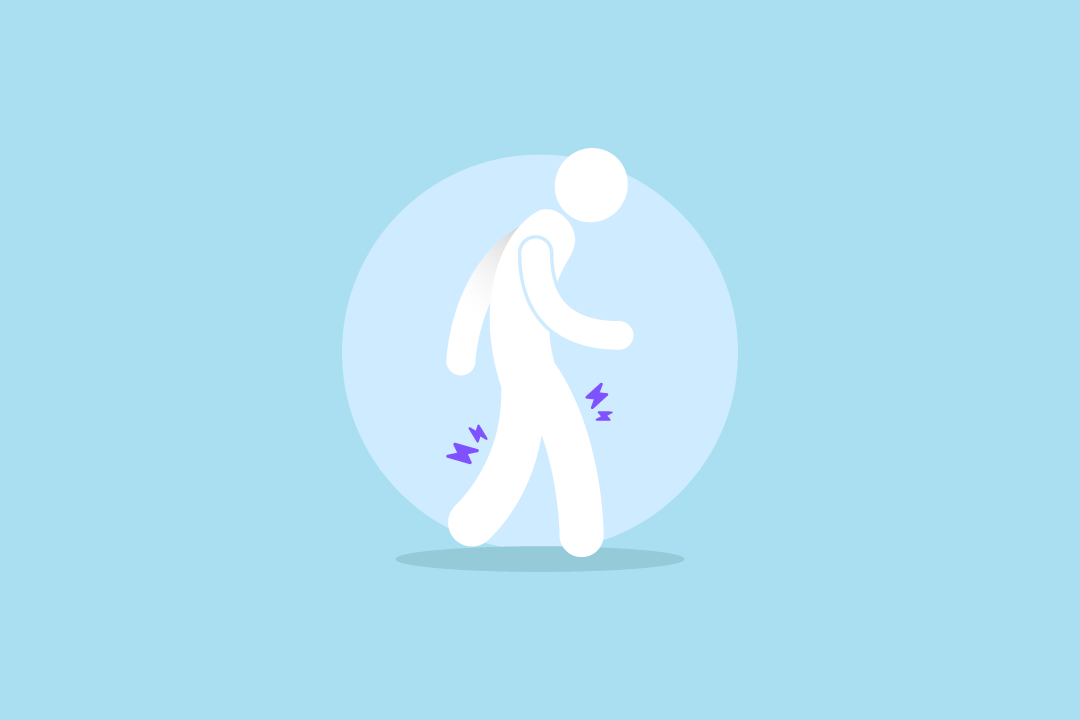How to Focus on Treating Patients When it Feels Like the World is Falling Apart
Learn how to focus during the workday even when current events are hectic. WebPT can help you remember what you got in this business for.

Subscribe
Get the latest news and tips directly in your inbox by subscribing to our monthly newsletter
2020 has been one hell of a year. We kicked off the new year with a news cycle about fraught international tensions—followed shortly by all-encompassing coverage of the Australian bushfires. In February and early March, news about COVID-19 began picking up steam, and the economy started to feel the effects of the pandemic in April. Early May heralded the arrival of the murder hornets, and the month ended with the tragic death of George Floyd. June was defined by social unrest and the BLM movement (which still continues to this day), and it’s beginning to look like July will be the month of the sun-blocking Saharan dust cloud and the resurgence of COVID-19. (Then comes hurricane season and a presidential election!)
Needless to say, the American public has a lot on its mind, and I think it's safe to assume that more than a few therapists (myself included) are struggling to stay present at work. It certainly doesn’t help that many providers are spending part of their day in front of a screen delivering remote care; telehealth has some wonderful benefits, but it distances us from the personal connection that we love.
So, what are therapists to do? How do we focus on treating patients when we’re consumed by everything that’s going on in the outside world?
Engage meaningfully with the people in your life.
Meaningful interpersonal connection is like a psychological balm. Studies show that strong social connections can help improve a person’s mental and emotional wellbeing. Unfortunately, with the country in various stages of lockdown, those all-too-important interpersonal connections are in short supply. That’s why we have to make a dedicated effort to connect with the people around us—in our personal lives and at work.
Video conferencing may not be the perfect way to connect with friends and family from a distance, but it’s better than nothing—and it’s definitely a step up from your run-of-the-mill phone call. So, schedule regular check-ins with your loved ones at a cadence that works for you (e.g., weekly or biweekly). If you live in the same city as those loved ones, try to plan safe meetups with one or two people at a time—like masked morning neighborhood walks (six feet apart, of course).
Connect with your coworkers.
If you don’t have many opportunities to connect with your family and friends (or if you just want more connection opportunities), you can forge meaningful relationships at work. This might be the perfect time to get to know your coworkers better. You don’t have to relegate yourselves to talking about patients or your commute—it’s far more rewarding on a personal level to talk about hobbies and recipes. Regular check-ins with clinic compadres (or comadres) who live alone or are new to the clinic can also go a long way to create camaraderie—and even build new friendships.
Create conversation boundaries.
We are being bombarded with bad (or less-than-ideal) news on a daily basis—so much so that there’s a name for it now: doomscrolling. Some people might process these stressors by talking about them, but others—maybe even you—might need a reprieve from the news sometimes. There’s no right or wrong way to process the latest current events, but you definitely need to establish some hard-and-fast conversation boundaries. Whether you decide you don’t want to talk about the news before your morning cup of coffee, or you want a personal media-blackout Friday, you’re well within your rights to kindly ask your social circles to respect your boundaries. Just be careful not to completely bury your head in the sand. The pandemic and BLM have both generated a lot of conversations about public health and diversity, and those discussions are worth having—even if you take a break now and then.
Prioritize your mental health.
Socially, we’ve progressed leaps and bounds when it comes to discussing mental health problems. But there’s still a stigma around mental illness that discourages many from seeking help or taking the steps they need to ensure their psychological well being. Luckily, there are some simple things you can do to help keep your mental health in tip-top shape.
Limit your news consumption.
This suggestion goes hand-in-hand with knowing when to set conversation boundaries with your peers. The reality of our modern digital world is that we have constant access to (and are constantly barraged with) news updates. It’s all too easy to become oversaturated with doom-and-gloom health forecasts and stories of violence and unrest. I don’t want to discourage anyone from staying up to date, but moderation is key. There’s a lot to be said for unplugging from all media (social included).
Try scheduling specific blocks of time where you catch up on the news for the day—maybe after dinner or once a week on Sundays. Do your best to seek information from reputable sources. Misinformation can cause unnecessary tension and stress for you and your peers.
Be kind to yourself.
I’m sure you’ve heard it 100 times by now, but these are unprecedented times, and we’re all trying to muddle our way through. You don’t have to continue functioning like the world is completely normal. If you’re not working at your full capacity, if you’ve had to withdraw from commitments, or if you’ve started replacing some of your home-cooked meals with take-out—that’s okay. We are all coping as best we can, and if you’ve found something that helps you relax (and it’s not harmful to yourself or others), then go for it. There’s no need to beat yourself up.
Part of being kind to yourself is staying active in any way you can. Gyms and other public recreation areas might be closed in some states (in Arizona, certainly), but we’re physical therapists. We’re masters of creating home gyms and adapting exercises to safely keep people active and moving. We should absolutely take advantage of that for ourselves—especially because so many therapists are providing more telehealth services, which limits the amount of activity they do at work.
Know when to seek help.
It’s hard to know when you need to seek additional mental health counseling, but there’s absolutely nothing wrong with doing so. As Mental Health America says here, “you don't have to be in crisis to seek help.” In fact, it’s better to reach out to a mental health professional before your mental health deteriorates too much. Trained professionals can give you the tools you need to manage your stress and help you process the collective trauma that we’re all experiencing.
Set aside time to take action.
Another way to manage the all-consuming need to stay on top of the latest news is to set aside time in your personal and professional life to take action. When I feel like something is very wrong, I have a burning need to focus on it. That feeling of urgency only subsides when I take an action to fix what I perceive as wrong. Perhaps taking action in your professional and personal life will help quench that fire.
Find solutions to your worries.
Some of the latest major news stories (e.g., the pandemic and BLM movement) are bleeding into our professional lives because of the nature of what we do. We are healthcare professionals, so of course patient safety, public health, and care quality are all top of mind. So, in many cases, it’s actually very appropriate to bring up these current events in the workplace—and addressing them might actually help you take your mind off them.
Take the COVID-19 pandemic, for example. If you’re glued to the updates in your city—and you’re worried about contracting the virus or spreading it to your patients—then revisit your clinic’s infection control policies. You should always follow CDC best practices to ensure the safety of staff and patients. And if you discover an overlooked safety precaution, then bring it up to the clinic manager or director. Don’t sit in fear—take action. Try to fix the problem.
Or, let’s say the BLM movement and the drive for diversity and equality is eating at your every thought. Set aside some time to learn the National Culturally and Linguistically Appropriate Services (CLAS) Standards, and try to recognize and address any implicit biases in your clinic and/or treatment methods. Advocate for diversity, equity, and inclusion (DEI) in your clinic, and speak out against any policies that may inadvertently affect one group of patients more than another. Become an advocate for the people who need your help most, and know that you’re doing your part to aid in the movement.
Engage with your community.
Finally, if you have the time or resources to do so in your personal life, try to give back to your community and advocate for what you believe in. If you’re concerned about the pandemic, advocate for universal mask-wearing and speak out against rampant misinformation. If you feel comfortable doing so, you can volunteer at pop-up COVID-19 testing sites, or you can donate hygiene and sanitation supplies to homeless shelters and local non-profits. If you want to contribute to the BLM movement, continue learning and (again) speaking out against misinformation. Volunteer at local nonprofits (they have digital tasks, too!), sign petitions, support black-owned businesses, donate to humanitarian centers—the list goes on.
You can make a difference in your community, and sometimes being proactive can help you find a modicum of inner peace—which could help you focus on patient treatment.
I’m not going to say that these suggestions are a stressor cure-all, but forging genuine human connections and taking time to care for yourself and your community is a great place to start. We’re all in this together, and we will make it through the muck and the mire to a better day.








